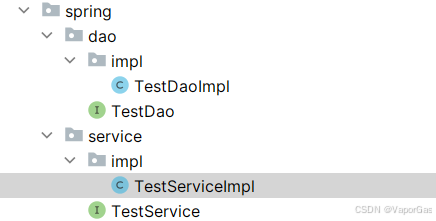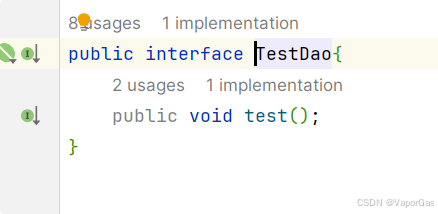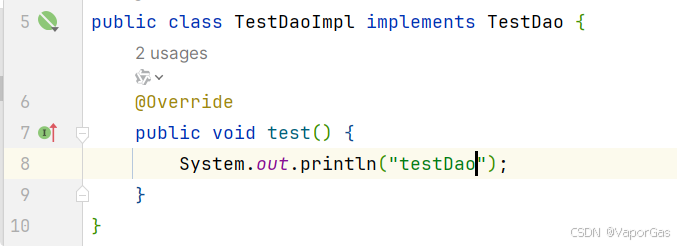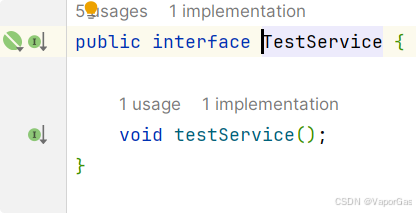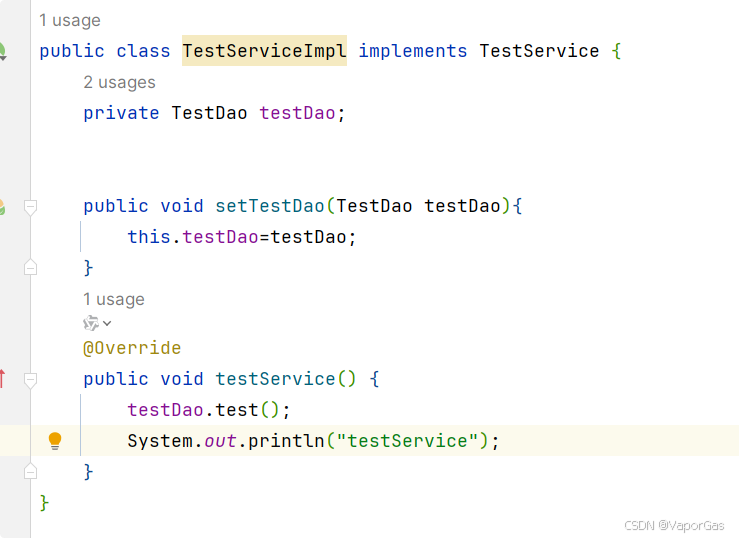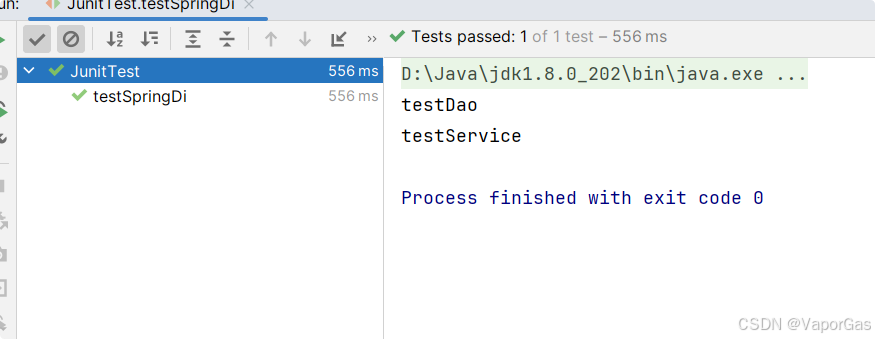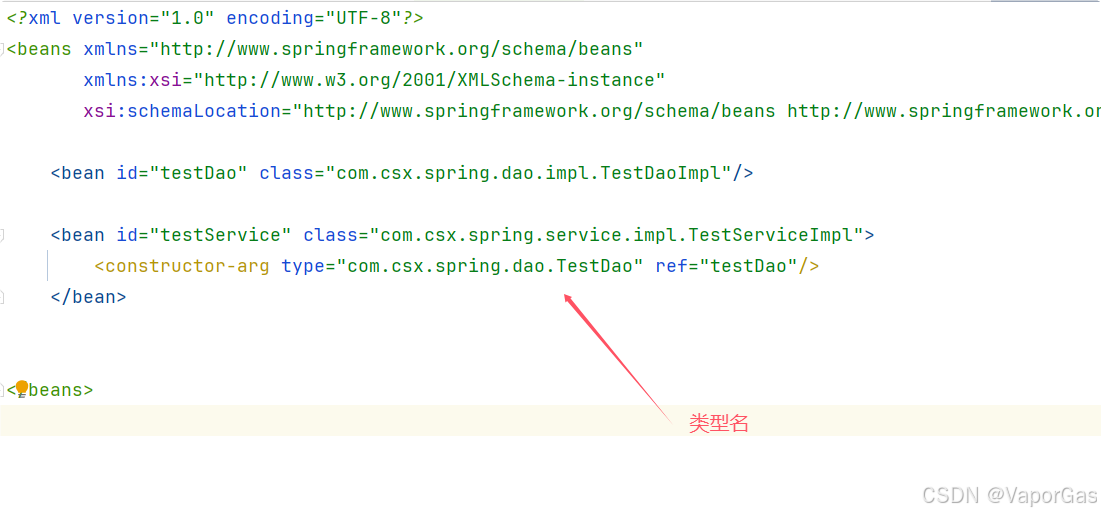前言
我们知道Spring的依赖注入的方式有setter注入,构造器注入。setter注入依赖于set方法进行属性值的注入,而构造器注入,依赖于构造方法进行属性值的注入。
构造注入和setter注入的区别
- 构造注入:通过构造函数将依赖对象注入到类中。在Spring框架中,这通常是通过在配置文件中使用
<constructor-arg>标签或在注解中使用@Autowired在构造函数上实现的。当Spring容器创建类的实例时,它会使用提供的构造函数参数来初始化对象。- setter注入:通过setter方法将依赖对象注入到类中。这通常是在对象创建后,通过调用对象的setter方法来完成的。在Spring框架中,可以使用
<property>标签或在setter方法上使用@Autowired注解来实现setter注入。
setter注入的实例很多,这里不具体说明,主要介绍一下构造器注入的几种方式
构造器注入
案例准备(Setter注入)
添加依赖,这里使用的spring5
<dependency>
<groupId>org.springframework</groupId>
<artifactId>spring-context</artifactId>
<version>5.2.10.RELEASE</version>
</dependency>准备Dao和依赖它的Service层
准备spring.xml的配置文件
<?xml version="1.0" encoding="UTF-8"?>
<beans xmlns="http://www.springframework.org/schema/beans"
xmlns:xsi="http://www.w3.org/2001/XMLSchema-instance"
xsi:schemaLocation="http://www.springframework.org/schema/beans http://www.springframework.org/schema/beans/spring-beans.xsd">
<bean id="testDao" class="com.csx.spring.dao.impl.TestDaoImpl"/>
<bean id="testService" class="com.csx.spring.service.impl.TestServiceImpl">
<property name="testDao" ref="testDao"/>
</bean>
</beans>
以上是使用setter方法实现依赖注入的基本方式
单元测试
效果演示
构造器注入案例改写
方式一:
修改TestServiceImpl
添加两个构造方法,一个是无参构造(必须存在,给spring创建对象使用),带有属性参数的构造方法,进行依赖注入使用。
public class TestServiceImpl implements TestService {
private TestDao testDao;
public TestServiceImpl(){
}
public TestServiceImpl(TestDao testDao){
this.testDao=testDao;
}
@Override
public void testService() {
testDao.test();
System.out.println("testService");
}
}
修改spring.xml
<?xml version="1.0" encoding="UTF-8"?>
<beans xmlns="http://www.springframework.org/schema/beans"
xmlns:xsi="http://www.w3.org/2001/XMLSchema-instance"
xsi:schemaLocation="http://www.springframework.org/schema/beans http://www.springframework.org/schema/beans/spring-beans.xsd">
<bean id="testDao" class="com.csx.spring.dao.impl.TestDaoImpl"/>
<bean id="testService" class="com.csx.spring.service.impl.TestServiceImpl">
<constructor-arg name="testDao" ref="testDao"/>
</bean>
</beans>
方式二:
- 构造器注入,name的值与构造方法的参数名称一致,这导致构造注入的耦合度较高
- 以上是标准的构造器注入,但是存在问题(存在多个参数时会导致一些问题,紧耦合的问题)
- 出现了一个问题:一旦更改了构造方法中的参数名,配置文件就会出错,这意味着代码和配置文件是一个紧耦合的状态。
- 解决方案:按照类型注入
方式三:
方式二,虽然可以减少一部分耦合的情况,但是这种方式,不能解决出现多个相同类型的参数情况.
方式三:按照索引位置注入
索引从0开始,依次加1
总结
- 构造注入:通常用于注入不可变的依赖对象。由于依赖是在对象创建时通过构造函数注入的,因此一旦对象被创建,它的依赖就不能被更改。
- setter注入:通常用于注入可变的依赖对象。由于依赖是通过setter方法注入的,因此可以在对象创建后随时更改其依赖。
